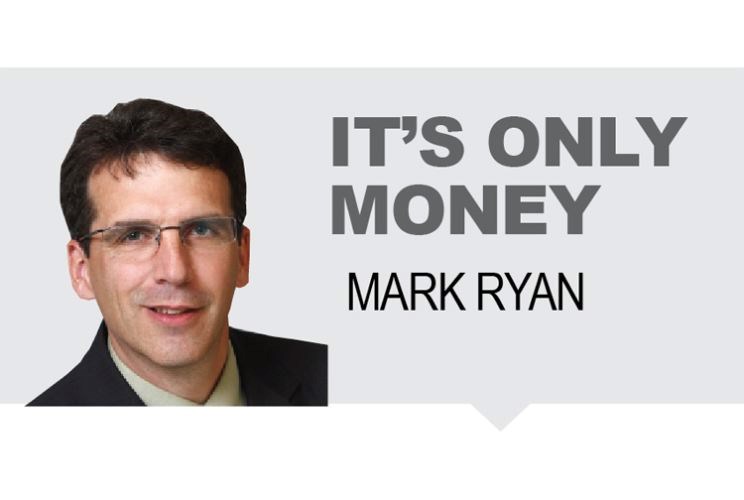In the First Grade, I frequented the school janitor's dimly-lit refuge under the building.
It had barely enough space for its utility equipment, a small desk and maybe three people. The room also had a bolted-down cast iron stationary vacuum cleaner, designed to remove dust from overused chalk brushes. This curious machine served no other purpose, save the occasional forearm hickey.
If a boy was well-behaved, finished his work early and was adventurous, he was given a box full of choke-invoking chalk erasers and sent down the hall, through the Staff Only door and down the creaking wooden stairway. We entered the dungeon, watched suspiciously by the escaped convict who held court there. The old man had a wooden left arm, more of a large stick (with the bark still on it) than a prosthetic, and one eye made of a slightly-rusted steel ball-bearing. Legend held that he had won this "Steely" in a marbles contest against an unfortunate Grade 7 boy, "One-eyed" Orin Mckinsky.
In the centre of the room stood the wrong end of the school garbage chute, right next to the incinerator. The resident pirate was duly terrified of the firebox - his left arm was made from kindling after all - and the door of the burner served as its damper, exposing the glowing hot cavern - that detention of detentions, reserved for especially bad boys.
But the chalk brush vacuum's pure steampunk magic was what held my gaze. Its powerful hum either consumed or emitted life-force or both. Captain Curmudgeon was also fond of it.
Patting it gently on its side before switching it on, he leaned down to whisper a tender apology.
It worked. The machine wheezed to a full capacity, sounding more like Apollo 11 than a household appliance. The mystical robot sucked the darkness out of the air, de-dusting the brushes back to their pristine striped red, white and blue. I wanted to dirty them again just to watch them get clean. It was all so very soothing. If I had one today I would rent it out for therapy.
The erasers were now ship-shape, ready for the pretty teacher upstairs, who would smile warmly and cup my face in her hands and try to resist the urge to kiss my forehead.
Taxes and trusts
Even scarier than janitors, if the IRS could tax pirates they would. But they are more likely to tax ex-patriot draft-dodging American teachers or others residing in Canada.
There is widespread use of trusts in Canada for estate and tax planning purposes, involving income splitting with family members, the growth shares of a family business or commercial real estate in an estate freeze plan.
The U.S. considers a trust to be a foreign trust if U.S. courts cannot exercise primary supervision over the trust or if U.S. persons don't control the trust. Income earned in a foreign trust that is deemed a grantor trust, (generally the case when the settlor and beneficiaries are Americans), is taxed directly in the hands of the grantor for U.S. tax purposes. Income distributed from a non-grantor trust (often the U.S. classification of this trust after the settlor or transferor of the trust dies) that was earned in years prior to the year in which the income is distributed may be subject to U.S. income accumulation rules. These rules which are often referred to as the "throw-back" rules apply tax at the taxpayers U.S. marginal tax rate of (up to 39.6 per cent) plus an interest charge on all accumulated income even if the income is from capital gains or qualified dividends.
Being mindful of these U.S. tax rules as they apply to foreign trusts can be critical in avoiding potential U.S. interest and penalty charges down the line.
As a result of the enactment by the U.S. of the Foreign Account Tax Compliance Act (FATCA) the IRS will have an easier time locating noncompliant Americans in Canada. This is because financial institutions around the world are now required to report financial account information to the U.S. in relation to such persons.
The U.S. estimates that it loses $100 billion a year in annual tax revenues that should be paid from amongst the estimated seven million U.S. taxpayers living abroad, 6.6 per cent of whom are thought to properly file under U.S. tax rules.
The U.S. has implemented voluntary disclosure programs over the years, providing methods by which noncompliant U.S. taxpayers, wherever they live, can get up to date on their U.S. tax filings.
One of these programs is better suited to taxpayers at a high risk of incurring significant tax penalties, and another is more suitable to those in lower risk scenarios with straight forward tax situations and minimal U.S. tax owing.
Details of these programs are beyond the scope of this article.
Mark Ryan is an investment advisor with RBC Dominion Securities Inc. (Member-Canadian Investor Protection Fund), and these are Mark's views, and not those of RBC Dominion Securities. This article is for information purposes only. Please consult with a professional advisor before taking any action based on information in this article. See Mark's website at: http://dir.rbcinvestments.com/mark.ryan.



